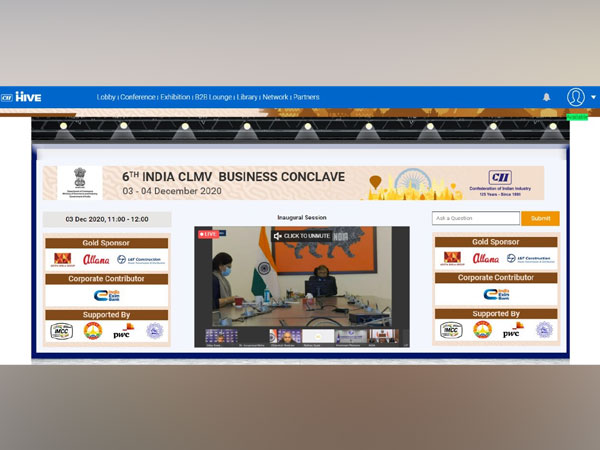Consistent with the Indian government's Act East Policy, India Export-Import (Exim) Bank's study highlighted the need for infrastructure development and partnership in Cambodia, Myanmar, Laos and Vietnam (CLMV) to enhance regional competitiveness.
The publication titled ‘Building Infrastructure: Opportunities for India’ was released during the Inaugural Session of the 6th India-CLMV Business Conclave 2020 today in the presence of many Indian and foreign dignitaries including V Muraleedharan, Minister of State for External Affairs, Government of India and Dr Guru Prasad Mohapatra, Secretary, Department for Promotion of Industry and Internal Trade, Ministry of Commerce and Industry, Government of India.
The study revealed that CLMV countries are amongst the fastest growing countries not only within the ASEAN region, but also globally.
"However, to catch up with the rest of ASEAN countries in terms of economic development, there is a growing demand for building infrastructure both in terms of new infrastructure and upgradation of existing infrastructure that is critical to sustaining growth in the region," it added.
Despite recent improvements in infrastructure financing, the annual infrastructure deficit of ASEAN continued to remain high at USD 184 billion.
To facilitate infrastructure development and address the financing gap, the study suggested innovative mechanism of financing besides traditional financing methods need to be explored to increase private sector involvement, which could include, among others, infrastructure bonds and public-private partnership (PPP).
The study identified potential areas of cooperation between India and CLMV nations which include, among others, energy sector and water management, e-commerce and digital connectivity, and physical connectivity network including rail, road, air and sea.
"India and CLMV’s robust trade synergy, which grew much faster than average growth in India-ASEAN trade in the last decade is testimony to the longstanding partnership built over the years," the report said.
The study's finding serve as a counterpoint to the 15-nation Regional Comprehensive Economic Partnership (RCEP) free trade agreement whose members include China, ASEAN and Australia which India refused to be a party to.



